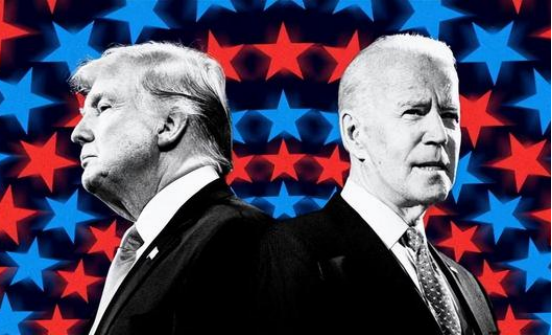
The 2024 US election competition is in full swing, and the Republican and Democratic parties have different degrees of understanding on issues such as tax debt, monetary policy and fiscal policy. The election results will directly affect the country's foreign relations and economic development, and the economic market will often fluctuate greatly, which is worthy of investors' attention.
The U.S. presidential election is held every four years, and its impact on economic markets remains one of the biggest concerns for investors. The author believes that the impact of the US election on the economic market can be examined from multiple perspectives, including the impact of policy expectations, market sentiment, investor behavior and other factors.
Policy expectations: The outcome of the US election may affect the government's fiscal policy, tax policy, trade policy, and regulatory environment. For example, the election of a candidate might herald looser fiscal policy or a tougher regulatory environment. Expected changes in these policies can affect corporate earnings prospects and investor sentiment.
Market sentiment: During the US election season, market sentiment may become more volatile due to uncertainty about the outcome of the election. Uncertainty over the outcome of the election could cause investors to take a wait-and-see approach, increasing market volatility. Once the election results are clear, markets are likely to adjust to expected policy changes.
Industry impact: Depending on the policy positions of each candidate, some industries may benefit, while others may face challenges. For example, if a candidate supports increased investment in renewable energy, the relevant industries may benefit. Conversely, certain industries could face challenges if a candidate advocates for less regulation.
International Relations and Trade policy: The outcome of the U.S. election could also affect U.S. relations with other countries, particularly in terms of trade policy. Candidates' positions on trade deals could affect the operations of multinational companies and the stability of global supply chains.
Long-term impact: The outcome of the US election has implications for economic markets beyond the short term. Policy changes could affect long-term trends in economic growth, the investment climate, and the country's debt levels.
As things stand, both Biden and Trump are far ahead of the rest of the field in their respective parties, and the final outcome is likely to come from the two men, who have pursued very different economic strategies.
The Trump administration's "America First" strategy tends to protect the economic interests of the United States, and its protectionist trade policies have led to trade frictions with countries such as China, the European Union and Japan. This policy was designed to revitalize the U.S. economy and manufacturing, but it has led to turmoil and instability in the global free trade system. The Biden administration has focused more on maintaining America's global leadership, emphasizing competition and confrontation in the ideological sphere. Whether Trump or Biden is elected, it will affect the reshaping and adjustment of the global economic order.
Overall, while economic markets may react to uncertainty about the outcome of the US election in the short term, the long-term impact will depend on the policies of those who actually implement them and the impact of those policies on the economy. Therefore, investors and business leaders need to carefully analyze the potential impact of election results on specific industry and market trends and make strategic decisions accordingly to maximize portfolio diversification, which is especially important during periods of volatility.

报告显示,中国电力投资加速增长,预计2024年电网基建投资将超过5300亿元。
近日,市场迎来了一则引人注目的消息:工业巨头3M公司(MMM.N)在本周五公布了其季度业绩报告,随后股价飙升至近两年来的
最近,外媒给OpenAI算了笔账,今年可能要血亏50亿美元。
近日,巴黎奥运会和世界铁人三项协会联合发布了一项重大决定,宣布因塞纳河水质污染问题,原定于近期进行的奥运会铁人三项首次下
当地时间7月18日,法国巴黎发生了一起令人震惊的持刀袭警事件。
近期,一则重大消息在国际舞台上引起轩然大波,马来西亚宣布加入金砖国家。
调查发现,互联网和智能手机的使用干扰了韩国近五分之一学生的生活。